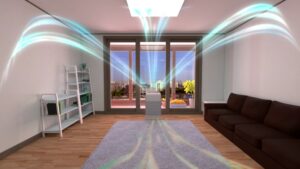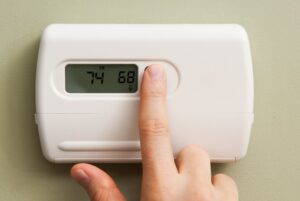How Much Does a New Air Conditioner Cost?
With proper maintenance, your air conditioner can work for 15 years or more. But even the most meticulously maintained air conditioner will need to be replaced at some point.
When you’re getting started planning for air conditioning installation in St. Cloud, we are aware that the expense is number one on your list of questions. The bright side is that getting a new air conditioner may be more economical than you are aware, thanks to rebates, our special offers and financing for qualified customers. You’ll also get better energy efficiency, which will usually pay off over time through lower cooling bills.
Here’s what to anticipate when you’re installing a new air conditioner.
When to Replace Your Air Conditioner
Knowing when to repair or replace your air conditioner may be difficult. Here’s what we recommend.
Replace
- Your air conditioner is more than 10 years old. While some could work longer, many air conditioners run for around 15 years with regular maintenance. We advise planning for air conditioning replacement close to the 10-year age. Even if you get a new one when it’s only a decade old, the U.S. Department of Energy says this swap could save you 20-40% on cooling bills.
- You’ve avoided routine maintenance for a long time. Just like a car, you cooling system needs routine air conditioning maintenance. Skipping this important service can result in diminished efficiency, more recurring repairs and even a reduced life span.
- Your air conditioner requires frequent or pricey repairs. Needing air conditioning repair is usually the result of not doing tune-ups. But as your air conditioner gets old, it’s more likely to experience a catastrophic breakdown. When repairs are more than half the cost of a new air conditioner, we recommend getting a new one.
- Your residence is uncomfortable. If your home feels too sticky or you’re having hot and cold spots in specific rooms, your air conditioner might be having difficulty keeping up. This is a hint you need to replace it.
- Your energy bills are costly. Your air conditioner becomes less efficient as it becomes older. Consequently, it may need to run more frequently or longer to keep your home at your desired temp. Newer air conditioners have the latest energy-efficient technology to keep your home comfy and cooling expenses low.
- Your air conditioner has R-22 refrigerant. If your air conditioner was replaced before 2010, there’s a good chance it runs on Freon. Also known as R-22, this refrigerant is no longer being produced because of its bad effects on the environment. You can keep using your air conditioner, but if it were to have a refrigerant leak, solving that would be very expensive. This is since R-22 is only available in limited, recycled portions.
Repair
- Your air conditioner is under 10 years old. If your air conditioner is newer, it’s wisest to repair it.
- Repairs aren’t common or inexpensive. The smartest way to prevent unexpected repairs is to have regular maintenance completed. But when repairs are only needed every so often or are reasonable, repair your air conditioner.
- Your air conditioner has a valid warranty. Most air conditioners are accompanied by a 5- to 10-year limited warranty that often covers the compressor. Your exact warranty length depends on your manufacturer, but it provides valuable protection in the event of a big failure. If your air conditioner is under warranty, we suggest fixing it.
Air Conditioner Cost
The majority of homeowners spend around $4,631 on a new air conditioner, per national averages compiled by HomeGuide. Air conditioner cost averages often range from $3,350 to $5,912, but your precise cost may be lower or higher.
There are a few aspects that impact your total cost, such as:
- The air conditioner model you choose, since more energy-efficient ones are pricier.
- The size your home needs.
- If you need to put in new ductwork, which can be required if your ductwork is old or damaged.
We give free estimates at Osceola Air, LLC so you can be confident you’re getting a good deal. And with our wide range of air conditioners, there’s an energy-efficient model that fits just about any budget.
Air Conditioner Size
Air conditioner size is crucial. A system that’s too small will have difficulty keeping your home cool. And one that’s too big may turn on and off too often, or short cycle. This action can inflate your cooling costs and wear your air conditioner out faster. This may also cause temperature variability and make your house feel less comfy.
At Osceola Air, LLC, our professionals have many years of experience in accurately sizing and installing the right air conditioner for your home. The size you need depends on how spacious your house is, plus a few other things. Some of the most standard sizes include:
- 2 ton, which cools up to 1,000 square feet
- 3 ton, which cools up to 1,600 square feet
- 4 ton, which cools up to 1,900 square feet
- 5 ton, which cools more than 2,000 square feet
Other considerations that can impact air conditioner size are:
- The temperatures in St. Cloud
- Ductwork quality and age
- How many windows your house has and the style, as big or picture windows might be more inefficient
- If your home has more sun or shade
- Insulation quality and thickness
- How many people are in your family
SEER Ratings
Your air conditioner’s efficiency is linked to its SEER, or Seasonal Energy Efficiency Rating. This number measures how well it transforms electricity to create cooling. The greater the number, the more efficient the air conditioner is.
When you’re getting a new air conditioner, it’s essential to know:
- Older air conditioners are rated around 8-9 SEER.
- Updated air conditioners start at 13 SEER. Ones installed in the southwest and southeast must be a minimum of 14 SEER due to U.S. Department of Energy regulations. As of 2017, these SEER rating requirements have saved homeowners trillions of dollars.
- ENERGY STAR®-certified air conditioners begin at 14.5 SEER.
- Higher SEER-rated air conditioners have more features to help you save more. These features may entail variable-speed cooling. Instead of going at full speed constantly, these air conditioners can reduce blower speeds adjusted for your cooling needs. This creates quieter and more energy-efficient air conditioning. While an air conditioner with a greater SEER rating is usually pricier, it may be eligible for more rebates. And the energy savings over its lifetime could help it pay for itself.
Start Your Air Conditioning Installation with Osceola Air, LLC Today
When you’re doing air conditioning replacement, the company who installs it is just as essential as the model you select. Osceola Air, LLC is one of the most trusted names for air conditioning installation in St. Cloud. From helping you select the recommended solution for your residence to going over financing options to professional installation, partnering with our professionals is a breeze. Reach us at 407-954-8626 to start today!
You May Also Like

4 Reasons to Invest in Improving Your IAQ in Lake Nona, FL
Several factors will impact the quality of your indoor air quality, including the presence of dust, mold spores, volatile organic compounds and… Continue Reading 4 Reasons to Invest in Improving Your IAQ in Lake Nona, FL…

What Causes These Common Ductless HVAC Noises in St. Cloud, FL?
Ductless HVAC systems are normally pretty quiet, so if you hear lots of odd noises, this is something you should investigate. Here… Continue Reading What Causes These Common Ductless HVAC Noises in St. Cloud, FL?…

5 Benefits of Upgrading Your Thermostat in Harmony, FL
The thermostat is one of the most important parts of your home’s heating and cooling system. It plays a key role in… Continue Reading 5 Benefits of Upgrading Your Thermostat in Harmony, FL…
